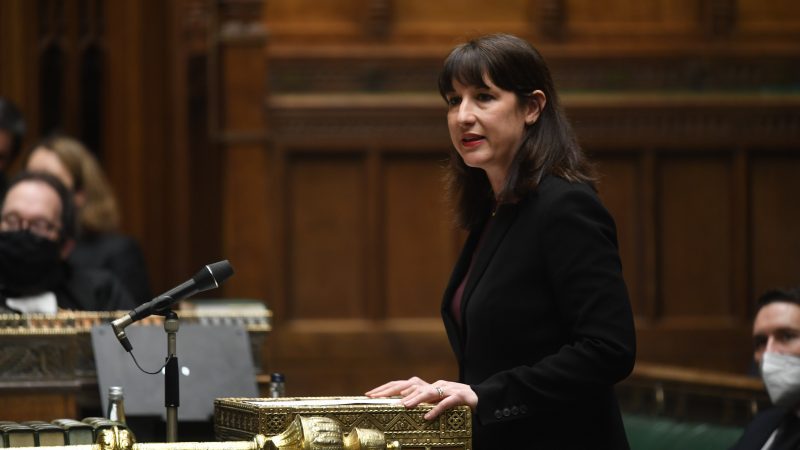
Rachel Reeves has accused Rishi Sunak today of choosing to “shield” oil and gas companies with a new “buy now, pay later” scheme for addressing rising household energy bills that “loads up costs for tomorrow”.
After it was announced that the energy price cap will rise to £1,971 in April, an increase of £693 for the average household, the Chancellor set out plans to mitigate the impact in a House of Commons statement.
Unveiling the measures, Sunak told MPs: “It is not sustainable to keep holding the price of energy artificially low. For me to stand here and pretend we don’t have to adjust to paying higher prices would be wrong and dishonest.”
The Chancellor outlined the following package, which he said was worth £9bn and would help 28 million households in England, Wales and Scotland:
- An upfront “discount” of household energy bills of £200, to be repaid in £40 instalments via bills over the next five years
- A £150 council tax rebate for those in bands A to D in April, which will not have to be repaid
- A discretionary fund for local authorities of nearly £150m to help lower-income households in higher tax bands and households in bands A to D who are exempt from council tax
- Expanding eligibility for the warm home discount – a one-off £140 discount on electricity bills – by “almost a third”
Reeves summed it up as “give with one hand now and take it all back later” and pointed out that Sunak was “gambling” as his scheme relies on energy prices falling. “They could go up further in October. What then?” she asked.
The Shadow Chancellor described the measures as a “pale imitation” of Labour’s proposals, which would cut VAT and provide extra targeted support for the poorest households, funded by a windfall tax on oil and gas companies.
“Labour’s plan will get £600 to the lowest income households while the Conservatives will only give them £350. The Conservatives don’t have an answer to the cost of living crisis because they are the cost of living crisis,” she said.
Reeves highlighted that Shell has revealed their profits quadrupled to $20bn in 2021. “Dividends up, profits up, and people’s energy bills up, too,” she said. But Sunak said a windfall tax would “deter investment”.
Emphasising that, with Sunak’s measures, “families will still be paying hundreds more”, Reeves said the failure to cut VAT on energy bills was “another pledge thrown onto the bonfire of broken Tory promises”.
Boris Johnson wrote in The Sun during the Brexit campaign, alongside Michael Gove, that leaving the EU would allow the UK government to scrap the “unfair and damaging” VAT on household energy bills.
Sunak argued today that a VAT cut would “disproportionately benefit wealthier households” and there is “no guarantee” suppliers would pass on the discount. He also said it would become a permanent government subsidy.
In light of the 54% rise in the energy price cap, Tory MP Stephen McPartland said the Treasury support was “welcome” but “lacks ambition” and represents a “missed opportunity by Rishi Sunak to support families courageously”.
TUC general secretary Frances O’Grady said the announcement was “hopelessly inadequate” and “poorly targeted”, representing “just £7 a week” for “most families” and “more than half must be paid back”.
The Bank of England monetary policy committee has voted to increase the interest rate from 0.25% to 0.5%. It also announced today its forecast that inflation would rise to 7.25% in April.




More from LabourList
Economic stability for an uncertain world: Spring Statement 2026
‘Biggest investment programme in our history’: Welsh Labour commit to NHS revamp if successful in Senedd elections
James Frith and Sharon Hodgson promoted as government ministers